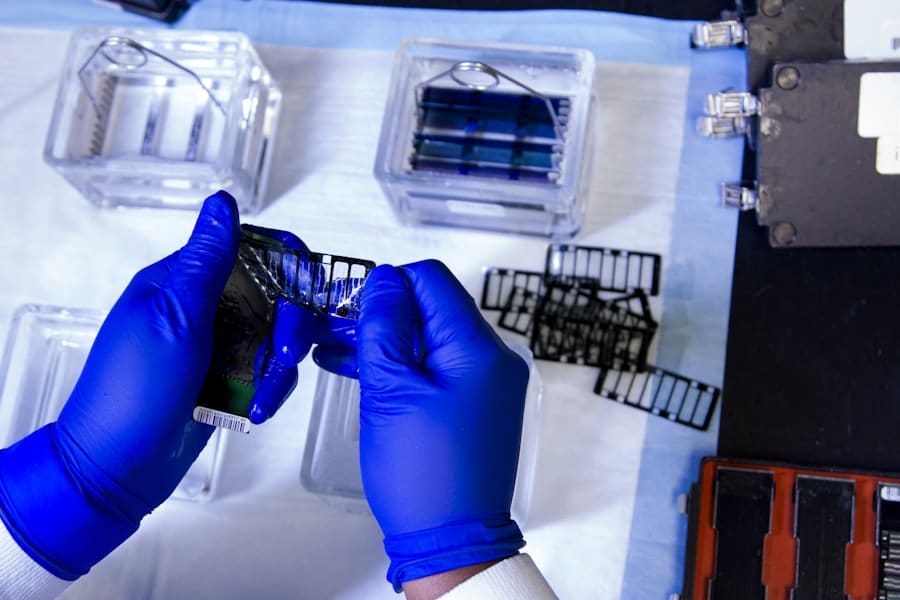The exploration of plant-based drug alternatives has gained significant traction in recent years, driven by a growing awareness of the limitations and side effects associated with synthetic pharmaceuticals. Historically, plants have served as a cornerstone of traditional medicine, with many cultures relying on herbal remedies for centuries. The resurgence of interest in these natural compounds is not merely a nostalgic return to ancient practices; it is a response to the pressing need for more sustainable, effective, and safer therapeutic options.
As the global population continues to expand and the burden of chronic diseases escalates, the demand for innovative solutions in healthcare has never been more urgent. Plant-based drug alternatives are derived from various parts of plants, including leaves, roots, flowers, and seeds. These natural products often contain a complex array of bioactive compounds that can interact with biological systems in unique ways.
The integration of biotechnology into the development of these alternatives has opened new avenues for research and application, allowing scientists to isolate, modify, and enhance the therapeutic properties of plant-derived substances. This intersection of traditional knowledge and modern science is paving the way for a new era in medicine, where the potential of nature is harnessed to address some of the most pressing health challenges of our time.
Key Takeaways
- Biotechnology enhances the development of effective plant-based drug alternatives.
- Plant-based drugs offer advantages like sustainability and reduced side effects.
- Several successful drugs have been developed using biotechnological methods.
- Challenges include regulatory hurdles and ensuring consistent drug quality.
- The future of medicine is increasingly shaped by biotechnological advances in plant-based therapies.
Advantages of Using Biotechnology in Developing Plant-Based Drugs
Biotechnology offers a multitude of advantages when it comes to developing plant-based drugs. One of the most significant benefits is the ability to enhance the efficacy and safety profiles of natural compounds through genetic engineering and molecular techniques. By manipulating the genetic makeup of plants, researchers can increase the concentration of desired bioactive compounds while reducing or eliminating harmful substances.
For instance, through techniques such as CRISPR-Cas9 gene editing, scientists can create plant varieties that produce higher yields of specific medicinal compounds, thereby improving their therapeutic potential. Moreover, biotechnology facilitates the large-scale production of plant-based drugs, which is crucial for meeting global healthcare demands. Traditional methods of harvesting medicinal plants can be unsustainable and may lead to depletion of natural resources.
In contrast, biotechnological approaches such as tissue culture and hydroponics allow for the cultivation of plants in controlled environments, ensuring consistent quality and availability. This not only helps preserve biodiversity but also enables the production of drugs that are more affordable and accessible to patients worldwide. The ability to produce plant-based drugs in a sustainable manner aligns with the growing emphasis on environmental stewardship in healthcare.
Examples of Plant-Based Drugs Developed Through Biotechnology

Several notable examples illustrate the successful application of biotechnology in developing plant-based drugs. One prominent case is the production of artemisinin, an antimalarial compound derived from the sweet wormwood plant (Artemisia annua). Traditionally, artemisinin was extracted from the plant’s leaves, but this method was limited by the plant’s growth conditions and seasonal availability.
Researchers have since developed genetically modified yeast that can produce artemisinin through fermentation processes. This biotechnological innovation not only ensures a stable supply of this critical drug but also reduces reliance on agricultural production, which can be affected by climate change and other environmental factors. Another compelling example is the development of paclitaxel, a chemotherapy drug originally derived from the bark of the Pacific yew tree (Taxus brevifolia).
The extraction process was not only labor-intensive but also unsustainable due to the slow growth rate of the yew tree. To address this issue, scientists have utilized plant cell culture techniques to produce paclitaxel in vitro. By cultivating yew tree cells in controlled laboratory conditions, researchers can generate paclitaxel without depleting natural populations.
This approach exemplifies how biotechnology can transform traditional medicinal sources into scalable and sustainable production methods.
Challenges and Limitations of Plant-Based Drug Alternatives
Despite the promising potential of plant-based drug alternatives, several challenges and limitations persist in their development and application. One significant hurdle is the complexity of plant secondary metabolites, which often exhibit intricate interactions within biological systems. Isolating specific compounds for therapeutic use can be challenging due to the presence of numerous other substances that may influence efficacy or safety.
Additionally, understanding the pharmacokinetics and pharmacodynamics of these compounds requires extensive research to ensure that they can be effectively integrated into modern medical practices. Another challenge lies in public perception and acceptance of biotechnologically developed plant-based drugs. While there is a growing interest in natural remedies, skepticism remains regarding genetically modified organisms (GMOs) and their safety for human consumption.
Regulatory frameworks vary significantly across countries, leading to inconsistencies in approval processes for biotechnological products derived from plants. This regulatory landscape can hinder innovation and slow down the introduction of potentially life-saving therapies into the market.
Impact of Plant-Based Drug Alternatives on the Pharmaceutical Industry
The rise of plant-based drug alternatives is reshaping the pharmaceutical industry in profound ways. As more companies invest in biotechnological research focused on natural products, there is a shift towards integrating traditional knowledge with cutting-edge science. This trend encourages collaboration between pharmaceutical companies and local communities that possess valuable insights into traditional medicinal practices.
Such partnerships can lead to the discovery of novel compounds that may have otherwise gone unnoticed. Furthermore, as consumers become increasingly health-conscious and environmentally aware, there is a growing demand for natural and sustainable products. Pharmaceutical companies are responding by diversifying their portfolios to include plant-based alternatives alongside synthetic drugs.
This shift not only aligns with consumer preferences but also positions companies to capitalize on emerging markets focused on holistic health solutions.
Regulatory and Safety Considerations for Plant-Based Drugs

The regulatory landscape surrounding plant-based drugs is complex and varies significantly across different jurisdictions. In many countries, regulatory agencies require extensive preclinical and clinical testing to ensure the safety and efficacy of new drugs before they can be approved for public use. For plant-based drugs developed through biotechnology, this process can be particularly challenging due to the need for rigorous evaluation of both the plant source and the biotechnological methods employed in their production.
Safety considerations are paramount when developing plant-based drugs, especially given that many natural compounds can exhibit potent biological activity. Adverse effects may arise from interactions with other medications or from individual variations in metabolism. Therefore, comprehensive clinical trials are essential to assess not only the therapeutic benefits but also potential risks associated with these drugs.
Additionally, transparency in labeling and clear communication about the nature of biotechnologically derived products are crucial for building public trust and ensuring informed consumer choices.
Future Prospects and Developments in Plant-Based Drug Alternatives
The future prospects for plant-based drug alternatives appear promising as advancements in biotechnology continue to evolve. Ongoing research into plant genomics and metabolomics is expected to yield new insights into the biosynthesis pathways of bioactive compounds, enabling more efficient extraction and modification techniques. As scientists deepen their understanding of how plants produce these compounds, they will be better equipped to enhance their therapeutic properties through biotechnological interventions.
Moreover, as global health challenges such as antibiotic resistance and chronic diseases become increasingly prevalent, there is a pressing need for innovative solutions that can complement existing treatments. Plant-based drugs offer a unique opportunity to address these challenges by providing alternative mechanisms of action that may circumvent resistance pathways associated with conventional pharmaceuticals. The integration of artificial intelligence and machine learning into drug discovery processes could further accelerate the identification and development of novel plant-based therapies.
The Role of Biotechnology in Shaping the Future of Medicine
Biotechnology stands at the forefront of a transformative movement within medicine, particularly concerning plant-based drug alternatives. By harnessing the power of nature through scientific innovation, researchers are uncovering new therapeutic possibilities that align with contemporary healthcare needs. The collaboration between traditional knowledge systems and modern biotechnological approaches holds immense potential for developing safe, effective, and sustainable treatments.
As we look ahead, it is clear that plant-based drug alternatives will play an increasingly vital role in shaping the future landscape of medicine. The ongoing exploration of natural compounds through biotechnology not only promises to enhance our understanding of health and disease but also offers hope for addressing some of humanity’s most pressing medical challenges.
In exploring the advancements in biotechnology and its role in developing plant-based drug alternatives, it’s interesting to consider how technology is evolving across various fields. For instance, the article on the best laptops for graphic design in 2023 highlights the importance of powerful computing tools that can aid researchers and designers in creating innovative solutions, including those in the biotech sector. This intersection of technology and biotechnology is paving the way for more effective and sustainable healthcare options.
FAQs
What is plant-based drug development?
Plant-based drug development involves using plants as sources or production platforms for pharmaceutical compounds. This approach can include extracting active ingredients directly from plants or engineering plants to produce specific therapeutic molecules.
How does biotechnology contribute to plant-based drug alternatives?
Biotechnology enables the modification of plant genetics to enhance the production of medicinal compounds, improve yield, and create novel drugs. Techniques such as genetic engineering, synthetic biology, and metabolic pathway optimization are commonly used.
What are the advantages of using plants for drug production?
Plants offer a cost-effective, scalable, and sustainable platform for producing complex molecules. They reduce reliance on chemical synthesis or animal-based systems and can be engineered to produce drugs with fewer side effects.
Are plant-based drugs as effective as traditional pharmaceuticals?
Many plant-based drugs have demonstrated comparable efficacy to traditional pharmaceuticals. However, effectiveness depends on the specific compound, formulation, and clinical validation.
What types of drugs can be produced using plant biotechnology?
A wide range of drugs, including vaccines, antibodies, enzymes, and small molecule therapeutics, can be produced using plant biotechnology. Examples include anticancer agents, antivirals, and anti-inflammatory compounds.
Is the production of plant-based drugs environmentally friendly?
Yes, plant-based drug production generally has a lower environmental impact compared to conventional chemical synthesis, as it often requires less energy, produces fewer toxic byproducts, and uses renewable resources.
What challenges exist in developing plant-based drug alternatives?
Challenges include ensuring consistent drug quality and dosage, regulatory approval processes, potential allergenicity, and scaling up production to meet commercial demands.
Are plant-based drugs approved by regulatory agencies?
Yes, several plant-derived drugs have been approved by regulatory agencies such as the FDA and EMA. Approval requires rigorous testing for safety, efficacy, and quality control.
Can plant biotechnology help in rapid drug development during pandemics?
Yes, plant biotechnology can accelerate drug and vaccine production due to faster scalability and lower costs, making it a valuable tool in responding to emerging infectious diseases.
How does genetic engineering improve the production of plant-based drugs?
Genetic engineering allows scientists to insert, delete, or modify genes in plants to increase the yield of desired compounds, reduce unwanted byproducts, and create novel therapeutic molecules not naturally found in plants.

